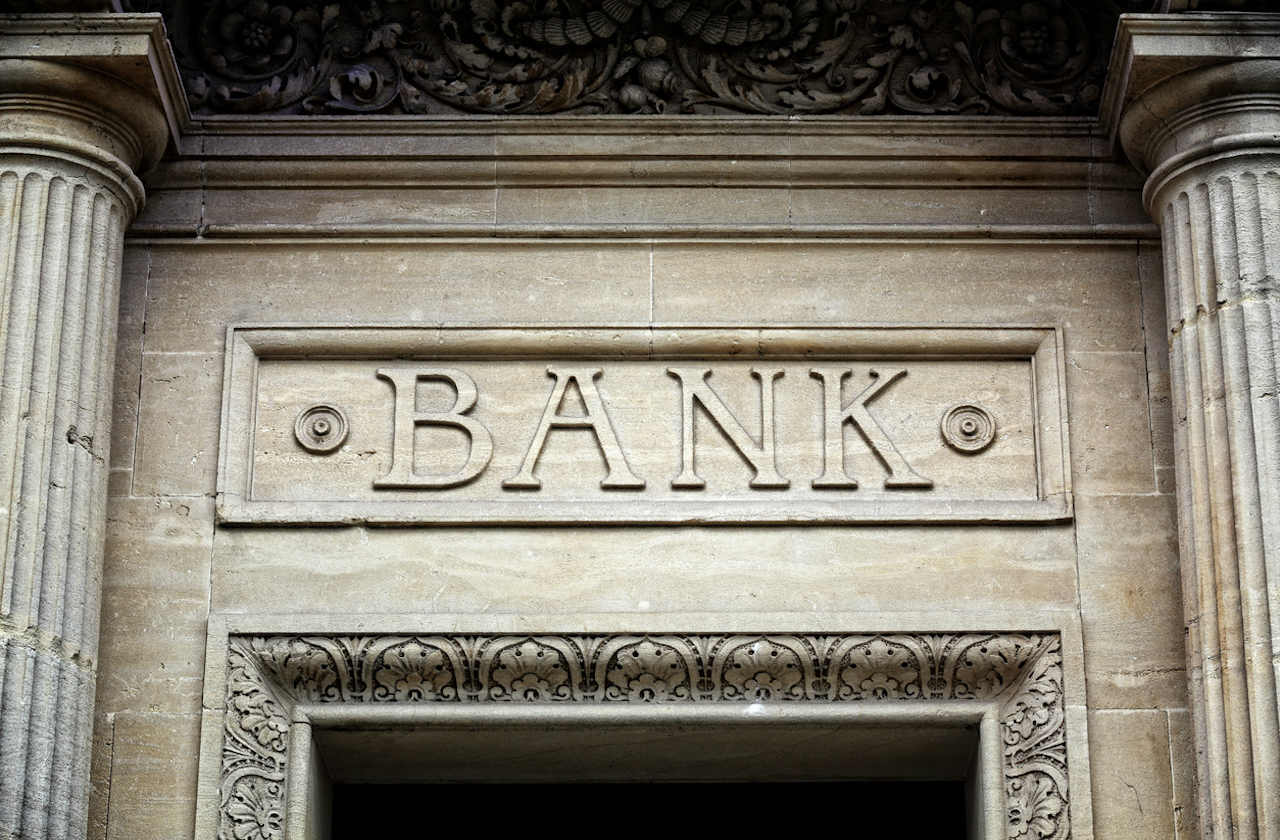Apple Card Fail: Apple and Goldman Sachs Fined $89 Million
CFPB fined the companies for mishandling Apple Card transaction disputes and misleading iPhone purchasers about interest-free payment options.


Profit and prosper with the best of Kiplinger's advice on investing, taxes, retirement, personal finance and much more. Delivered daily. Enter your email in the box and click Sign Me Up.
You are now subscribed
Your newsletter sign-up was successful
Want to add more newsletters?

Delivered daily
Kiplinger Today
Profit and prosper with the best of Kiplinger's advice on investing, taxes, retirement, personal finance and much more delivered daily. Smart money moves start here.

Sent five days a week
Kiplinger A Step Ahead
Get practical help to make better financial decisions in your everyday life, from spending to savings on top deals.

Delivered daily
Kiplinger Closing Bell
Get today's biggest financial and investing headlines delivered to your inbox every day the U.S. stock market is open.

Sent twice a week
Kiplinger Adviser Intel
Financial pros across the country share best practices and fresh tactics to preserve and grow your wealth.

Delivered weekly
Kiplinger Tax Tips
Trim your federal and state tax bills with practical tax-planning and tax-cutting strategies.

Sent twice a week
Kiplinger Retirement Tips
Your twice-a-week guide to planning and enjoying a financially secure and richly rewarding retirement

Sent bimonthly.
Kiplinger Adviser Angle
Insights for advisers, wealth managers and other financial professionals.

Sent twice a week
Kiplinger Investing Weekly
Your twice-a-week roundup of promising stocks, funds, companies and industries you should consider, ones you should avoid, and why.

Sent weekly for six weeks
Kiplinger Invest for Retirement
Your step-by-step six-part series on how to invest for retirement, from devising a successful strategy to exactly which investments to choose.
Love the Apple Card and Apple products? If so, you may be interested to know that the Consumer Financial Protection Bureau (CFPB) has ordered Apple and Goldman Sachs to pay more than $89 million in penalties for the mishandling of customer disputes and misleading customers about payment options for Apple devices.
The CFPB is also banning Goldman Sachs from introducing a new credit card unless the company can provide a credible plan that the product will comply with the law. In fact, if Goldman Sachs makes another attempt to enter the credit card market, the CFPB plans to police the company to avoid repeat offenses.
“Apple and Goldman Sachs illegally sidestepped their legal obligations for Apple Card borrowers. Big Tech companies and big Wall Street firms should not behave as if they are exempt from federal law,” said CFPB Director Rohit Chopra.
From just $107.88 $24.99 for Kiplinger Personal Finance
Become a smarter, better informed investor. Subscribe from just $107.88 $24.99, plus get up to 4 Special Issues

Sign up for Kiplinger’s Free Newsletters
Profit and prosper with the best of expert advice on investing, taxes, retirement, personal finance and more - straight to your e-mail.
Profit and prosper with the best of expert advice - straight to your e-mail.
What were the Apple Card failures?
The CFPB found that Apple and Goldman Sachs misled consumers about interest-free payment plans for Apple devices. And, although many customers thought they would automatically get interest-free monthly payments when buying Apple devices with their Apple Card, they were instead charged interest. The interest-free payment option on certain browsers wasn’t even shown on Apple’s website. Beyond that, the CFPB also found:
- Apple failed to send tens of thousands of consumer disputes of Apple Card transactions to Goldman Sachs, and when Apple did send disputes, Goldman Sachs did not follow federal requirements for investigating the disputes.
- Apple and Goldman Sachs launched the Apple Card despite third-party warnings that the Apple Card disputes system was not ready due to technological issues.
- Consequently, consumers faced long waits to get money back for disputed charges, and some had incorrect negative information added to their credit reports.
- Goldman Sachs misled consumers about applying some refunds, which led to consumers paying additional interest charges.
Of the $89 million, the CFPB is ordering Goldman Sachs to pay a $45 million civil money penalty and at least $19.8 million in redress to victims for its role in marketing, offering, and servicing the Apple Card. It is also ordering Apple to pay a $25 million civil money penalty to the bureau’s victims relief fund. Goldman Sachs is ordered to pay a $45 million civil money penalty and at least $19.8 million in redress to victims for its role in marketing, offering, and servicing the Apple Card. Payments from the Civil Penalty Fund depend on the amount of money available and other factors.
Apple Card / Goldman Sachs partnership
Because many of Apple’s products, such as the iPhone, are more expensive than other brands, many consumers favor financing purchases with payment plans and credit products. When Apple introduced the Apple Card in partnership with Goldman Sachs Bank in August 2019, the partnership allowed Apple to provide a financing program to help increase sales of its devices and induce spending at Apple’s retail stores and through the Apple App. At the time, the Apple Card partnership offered Goldman Sachs an opportunity to establish itself in the market.
With the Apple Card, Goldman Sachs extends credit to consumers and handles account servicing. Apple designed the customer-facing interfaces to manage Apple Card accounts on Apple devices. That includes a “Report an Issue” feature, which allows consumers to dispute Apple Card transactions. Apple was also deeply involved in marketing and advertising.
In December 2019, Apple and Goldman Sachs launched a new feature called Apple Card Monthly Installments. This feature allows users to finance the purchase of certain Apple devices with Apple Card directly from Apple through interest-free monthly installments, similar to a Buy Now, Pay Later product. However, when Apple’s customers experienced improper charges or filed disputes, the systems developed by the companies failed to address them.
Are you affected by the CFPB action?
According to the Civil Penalty Fund’s website, you could be eligible to receive a payment through the fund if you “were harmed by an unlawful activity where a fine was imposed in a CFPB case,” and you “won’t otherwise receive full compensation from the wrongdoer.” But you’ll have to wait until details about the distribution are available. Until then, you can submit complaints about financial products and services by visiting the CFPB’s website. Or, if you think you may be due a portion of the funds, call (855) 411-CFPB (2372).
If you're worried it's the end of the line for the Apple Card, think again. For the third consecutive year, Apple Card has been recognized with a No. 1 ranking in their segment in the U.S. Credit Card Satisfaction Study. Apple announced in November 2023 that it would end its credit card partnership with Goldman Sachs and has not announced which bank might be its new partner.
Related Content
- If You'd Put $1,000 Into Apple Stock 20 Years Ago, Here's What You'd Have Today
- Apple's Launch Event 2024: Next-Generation Apple Watches and New AirPods 4
- Is It Worth It to Upgrade to the New iPhone 16? Well, Yes.
- Best Rewards Credit Cards
Profit and prosper with the best of Kiplinger's advice on investing, taxes, retirement, personal finance and much more. Delivered daily. Enter your email in the box and click Sign Me Up.

For the past 18+ years, Kathryn has highlighted the humanity in personal finance by shaping stories that identify the opportunities and obstacles in managing a person's finances. All the same, she’ll jump on other equally important topics if needed. Kathryn graduated with a degree in Journalism and lives in Duluth, Minnesota. She joined Kiplinger in 2023 as a contributor.
-
 Nasdaq Leads a Rocky Risk-On Rally: Stock Market Today
Nasdaq Leads a Rocky Risk-On Rally: Stock Market TodayAnother worrying bout of late-session weakness couldn't take down the main equity indexes on Wednesday.
-
 Quiz: Do You Know How to Avoid the "Medigap Trap?"
Quiz: Do You Know How to Avoid the "Medigap Trap?"Quiz Test your basic knowledge of the "Medigap Trap" in our quick quiz.
-
 5 Top Tax-Efficient Mutual Funds for Smarter Investing
5 Top Tax-Efficient Mutual Funds for Smarter InvestingMutual funds are many things, but "tax-friendly" usually isn't one of them. These are the exceptions.
-
 Super Deals and Discounts for 2021
Super Deals and Discounts for 2021Smart Buying Consumer prices are popping as the economy reopens, and that means finding good values is more important than ever. We uncovered bargains on everything from stocks to streaming and televisions to tablets. We even located charming, off-the-beaten-path places that will pay you to move.
-
 With Money, What You Do Matters More Than What You Know
With Money, What You Do Matters More Than What You KnowInvestor Psychology Even the smartest, most well-informed retirement savers can lose a boatload of money if they don’t have their heads on straight. An interview with the author of “The Psychology of Money” reveals some interesting insights on how to build and maintain your wealth.
-
 Fed Revokes Rule Limiting Savings Transfers
Fed Revokes Rule Limiting Savings Transfersbanking But banks are not required to lift the limits or stop charging fees for excessive transactions.
-
 Retirees, Avoid Sweep Accounts With Low Yields
Retirees, Avoid Sweep Accounts With Low Yieldsretirement Many big brokerage firms are pushing customers into lower-yielding accounts as higher-yielding money-market funds become a scarce option.
-
 3 Good Bank Stocks Under $20
3 Good Bank Stocks Under $20investing Warren Buffett is a big fan of bank stocks.
-
 Why Warren Buffett Loves Fed Rate Hikes
Why Warren Buffett Loves Fed Rate Hikesinvesting As a bondholder, owner of insurance companies and a big investor in banks, Berkshire Hathaway profits from rising interest rates in a number of ways.